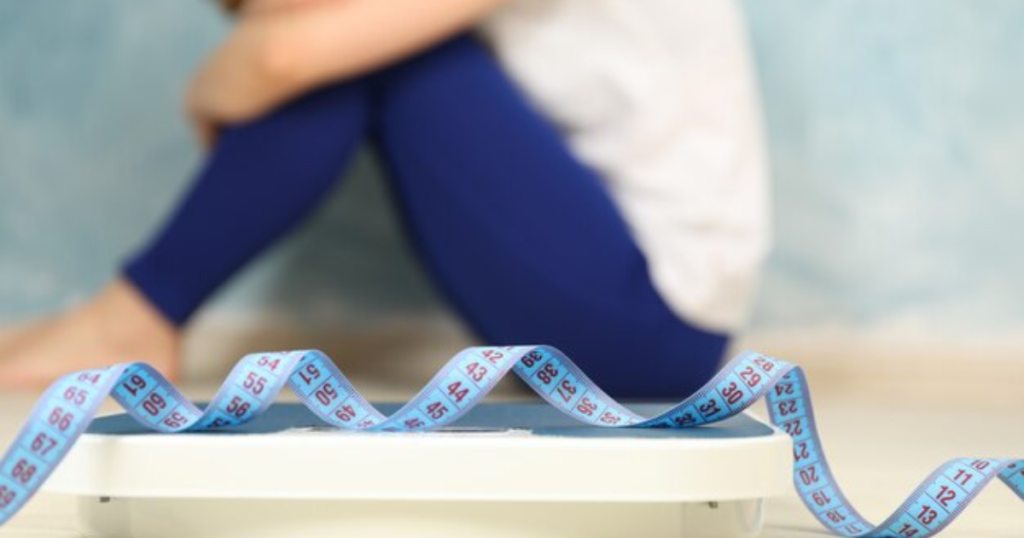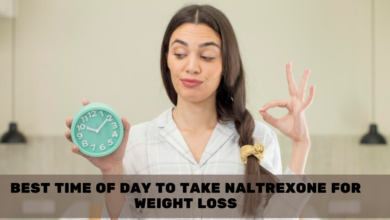Can Linzess Cause Weight Loss? Mystery Resolve

In the realm of digestive health, Linzess has emerged as a go-to medication for addressing specific issues. However, a question that often perplexes individuals is whether Linzess can cause weight loss. In this article, we delve into the intricacies of Linzess, exploring its mechanism, side effects, and the elusive connection between Linzess and shedding pounds.
What is Linzess?
Linzess, also known as linaclotide, is a prescription medicine classified as a guanylate cyclase-C agonist that is used to treat gastrointestinal disorders. It specifically treats Irritable Bowel Syndrome with Constipation (IBS-C), Chronic Idiopathic Constipation (CIC) in adults, and functional constipation in children aged 6 to 17.
Linzess’ mechanism of action involves its active component, linaclotide, which targets particular receptors in the intestines. It stimulates guanylate cyclase-C, which raises cyclic guanosine monophosphate (cGMP). This activation promotes the release of chloride and bicarbonate into the intestinal lumen, which aids fluid secretion and improves bowel motions. This dual-purpose drug treats a variety of gastrointestinal disorders in both adults and children.
Understanding Linzess and Its Mechanism
Linzess works within the digestive system, altering gut motility and relieving symptoms associated with certain illnesses. It alleviates stomach discomfort by promoting bowel motions. The fundamental goal is to regulate the complex dance of muscles in the gastrointestinal tract.
What are the Uses of Linzess?
Linzess, also known by the generic name linaclotide, is a medicine used to treat particular gastrointestinal disorders. Here are the primary applications of Linzess:
Irritable Bowel Syndrome with Constipation (IBS-C):
The FDA has granted a license to Linzess for alleviating IBS-C symptoms in adults. Linzess actively relieves abdominal pain and discomfort while enhancing bowel movements in individuals experiencing constipation due to irritable bowel syndrome.
Chronic idiopathic constipation (CIC):
Linzess is also used in the treatment of chronic idiopathic constipation in adults. It helps to promote regular bowel motions in people who have chronic constipation without a known underlying cause.
Functional constipation in children (ages 6–17):
Linzess is licensed for usage in children aged 6 to 17 who have functional constipation. This offers a therapy alternative for younger people with chronic constipation.
Gastrointestinal motility disorders:
Linzess works by boosting intestinal fluid secretion and speeding up stool movement. This method of action makes it beneficial in treating certain gastrointestinal motility problems, helping to normalize bowel function.
Symptom Relief:
Linzess’ principal purpose is to provide symptomatic comfort to people with bowel irregularity. It regulates bowel motions by targeting certain receptors in the gastrointestinal tract, hence relieving constipation symptoms.

What are the Side Effects of Linzess?
Linzess (linaclotide) is a medicine used to treat IBS-C and CIC. Linzess, like any drug, can have negative effects. Typical side effects include:
- Diarrhea: Diarrhea is one of Linzess’ most commonly reported side effects. It usually occurs in the first few weeks of treatment and improves with time.
- Abdominal pain: Some persons may feel abdominal discomfort or pain when using Linzess.
- Flatulence (gas): Linzess can cause flatulence (gas).
- Headache: Some Linzess users have reported experiencing headaches.
- Nausea: Some people may experience nausea as a result of the medicine.
- Vomiting: Vomiting is a rare, but probable, side effect of Linzess.
It is important to note that not everyone will experience these adverse effects, and some may not have any at all. If you have any severe or persistent adverse effects, you should immediately consult your healthcare professional.
Can Linzess Cause Weight Loss?
Linzess effectively addresses specific digestive system concerns by serving as a prescribed capsule for the treatment of conditions such as irritable bowel syndrome with constipation (IBS-C) in adults, chronic idiopathic constipation (CIC), and functional constipation (FC) in select children. Linzess can cause a variety of side effects, from moderate to severe, such as diarrhea, bloating, and abdominal pain.
However, Linzess does not cause weight gain or loss. However, it can cause diarrhea, which can result in weight loss. Linzess, on the other hand, may promote bloating, resulting in weight gain. It’s vital to remember that Linzess isn’t marketed as a weight reduction medication, and its main purpose is to treat constipation. If you are concerned about your medicine, please visit your doctor.
How Linzess Affects the Body Weight
Linzess (linaclotide) works largely on the gastrointestinal system, particularly in the treatment of irritable bowel syndrome with constipation (IBS-C) and chronic idiopathic constipation. While Linzess is not designed to cause weight loss, its effects on the digestive system can have an indirect impact on body weight. Here’s how Linzess impacts your body:
Increased Bowel Movement:
Linzess acts by activating guanylate cyclase-C receptors in the intestinal epithelium, causing enhanced chloride and bicarbonate release into the colon. This leads to more bowel movements and improved intestinal regularity. Some people may notice a reduction in bloating and discomfort caused by constipation.
Diarrhea:
Linzess commonly causes diarrhea. The increased frequency and fluid content of bowel movements may cause a temporary loss of fluids, however this is due to water content rather than fat loss.
Improved Digestive function:
Linzess may help to promote more regular bowel motions, resulting in a lighter, less bloated digestive function. This can contribute to a sense of well-being, but it is not the same as actual weight loss.

Can Linzess Make You Gain Weight?
Linzess (linaclotide) is a medicine often used to treat irritable bowel syndrome with constipation (IBS-C) and chronic idiopathic constipation (CIC). Weight gain is not a commonly reported side effect of LINZESS, according to clinical trials and accessible data.
Individual responses to drugs might vary, so visit your healthcare provider if you are concerned about weight fluctuations or any other side effects while taking Linzess. They can offer individualized advise depending on your medical history and current situations.
Potential Risks of Weight Loss with Linzess
Linzess (linaclotide) is not meant to cause weight loss. While Linzess is generally well accepted for its intended application, unintentional weight loss can be concerning and may signal underlying problems. Here are some possible dangers and considerations:
Dehydration: Linzess can cause diarrhea, which can result in increased fluid loss and, in certain situations, dehydration. Dehydration can have a number of negative effects on health, including electrolyte imbalances and impaired renal function.
Nutrient Absorption: Chronic diarrhea, if not treated effectively, can impair the absorption of vital nutrients from the digestive system. This could lead to nutritional deficits and other health issues.
Electrolyte Imbalance: Diarrhea can cause excessive fluid loss, disrupting the body’s electrolyte balance (including sodium, potassium, and chloride). Electrolyte imbalances can cause a variety of health problems, including weakness, dizziness, and heart abnormalities.
Malabsorption Issues: Persistent diarrhea can interfere with nutrient absorption from food, potentially leading to malabsorption and nutritional deficits.
It is critical to watch for any unintentional weight loss while taking Linzess and instantly notify your healthcare professional. If you lose weight, your doctor may need to change your treatment strategy or look into the underlying problem. Never change your prescription regimen without first checking with your healthcare professional.

Conclusion
In conclusion, the link between Linzess and weight loss is complex and not uniformly relevant. Individuals must gather complete information, consider their unique circumstances, and seek counsel from healthcare professionals in order to receive tailored advice. Making informed decisions about medication and its potential impacts on weight necessitates thorough evaluation of one’s individual health conditions and overall well-being.
More to Read: When Can I Eat Spicy Food After Wisdom Teeth Removal?
Frequently Asked Questions
Can Linzess be the direct cause of weight loss?
While not a direct intended consequence, some people may notice weight changes while using Linzess.
Are there any long-term hazards linked with using Linzess for weight loss?
Long-term concerns may exist, stressing the need for ongoing monitoring and consultation with healthcare specialists.
How quickly can Linzess cause weight changes?
Individuals’ weight-change timelines vary and are determined by a variety of circumstances.
Can lifestyle changes improve the impact of Linzess on intestinal health?
Adopting a healthy lifestyle can enhance the effects of Linzess and improve overall well-being.
Is it recommended to discontinue Linzess if weight reduction occurs?
It is not advisable to cease taking medication abruptly without medical supervision; instead, consult with your healthcare professional.





3 Comments